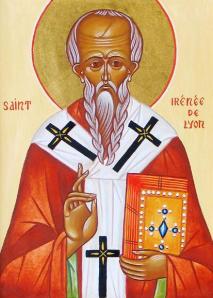The book is finally here! This represents the collaboration of many contributors spanning from the UK, Australia, New Zealand, and the United States; an international effort. Myk Habets originally conceived of this project, and graciously asked me to join him in the editing and authoring of this most awesome volume (if I must say so myself)! Our book presents a mood of Calvinism, that at least for Myk and I can be said to be an mood given birth After Torrance (and then After Calvin, After Barth, so an so forth); and a mood that we hope is catching. The hope is, at least/at most, that Jesus Christ the Son of the Father by the Holy Spirit will be magnified through the effort exerted through the process of birthing this book. He will be most magnified if the readers of our book are pointed beyond themselves to the eternal Word, Jesus Christ! Our book, is not primarily a polemical work against classic Calvinism; but it does implicitly (and at points explicitly) offer a critique of the usual mode of Calvinism, and it does so constructively, by simply reminding her cousin that she indeed has a cousin. Evangelical Calvinism is rooted, methodologically, in Trinitarian Theology through a so called 'Christ-conditioned' shape. And so, by definition, EC emphasizes God as Love in life, and Grace in action. Unlike its classic cousin, EC believes the logic of grace that undergirds her articulation require that ALL humanity is represented (universally) in Jesus Christ; thus we limit the atonement to Jesus' humanity for us (the us being all of humanity who have ever lived). It is this that we think makes 'our' Calvinism, Evangelical or 'Good News'. If you are interested in reading more about Evangelical Calvinism, and how it is fleshed out through the personalities of Myk, myself and our authors; then you need to pick our just released book up and read it ... you will not be disappointed. Here are the ordering details:
Evangelical Calvinism
Essays Resourcing the Continuing Reformation of the Church.
Edited by Myk Habets and Bobby Grow
(click on the above title to go to the publishers website to order)
I wanted to especially, and publically, thank Myk Habets for his leadership on this project; and for allowing me to be a part of it, what a blessing! I also wanted to publically thank each and everyone of our authors, and endorsers; you all made this book what it is.
[I also want to say thank you to all of you who have pressed me here at the blog, your challenges and encouragement have all made their way into the book ;-) ... so thank you all.]
Here is the blurb from the back jacket of the book, and then the table of contents:
Blurb: In this exciting volume new and emerging voices join senior Reformed scholars in presenting a coherent and impassioned articulation of Calvinism for today’s world. Evangelical Calvinism represents a mood within current Reformed theology. The various contributors are in different ways articulating that mood, of which their very diversity is a significant element. In attempting to outline features of an Evangelical Calvinism a number of the contributors compare and contrast this approach with that of the Federal Calvinism that is currently dominant in North American Reformed theology, challenging the assumption that Federal Calvinism is the only possible expression of orthodox Reformed theology. This book does not, however, represent the arrival of a “new-Calvinism” or even a “neo-Calvinism,” if by those terms are meant a novel reading of the Reformed faith. An Evangelical Calvinism highlights a Calvinistic tradition that has developed particularly within Scotland, but is not unique to the Scots. The editors have picked up the baton passed on by John Calvin, Karl Barth, Thomas Torrance, and others, in order to offer the family of Reformed theologies a reinvigorated theological and spiritual ethos. This volume promises to set the agenda for Reformed-Calvinist discussion for some time to come.
Table of Contents:
Prologue: Union in Christ: A Declaration for the Church. Andrew Purves and Mark Achtemeier
Introduction
1: Theologia Reformata et Semper Reformanda. Towards a Definition of Evangelical Calvinism. Myk Habets and Bobby Grow
Part 1: Prolegomena – Historical Theology
2: The Phylogeny of Calvin’s Progeny: A Prolusion. Charles Partee
3: The Depth Dimension of Scripture: A Prolegomenon to Evangelical Calvinism. Adam Nigh
4: Analogia Fidei or Analogia Entis: Either Through Christ or Through Nature. Bobby Grow
5: The Christology of Vicarious Agency in the Scots Confession According to Karl Barth. Andrew Purves
Part 2: Systematic Theology
6: Pietas, Religio, and the God Who Is. Gannon Murphy
7: “There is no God behind the back of Jesus Christ:” Christologically Conditioned Election. Myk Habets
8: A Way Forward on the Question of the Transmission of Original Sin. Marcus Johnson
9: “The Highest Degree of Importance”: Union with Christ and Soteriology. Marcus Johnson
10: “Tha mi a’ toirt fainear dur gearan:” J. McLeod Campbell and P.T. Forsyth on the Extent of Christ’s Vicarious Ministry. Jason Goroncy
11: “Suffer the little children to come to me, for theirs is the kingdom of heaven.” Infant Salvation and the Destiny of the Severely Mentally Disabled. Myk Habets
Part 3: Applied Theology
12: Living as God’s Children: Calvin’s Institutes as Primer for Spiritual Formation. Julie Canlis
13: Idolaters at Providential Prayer: Calvin’s Praying Through the Divine Governance. John C McDowell
14: Worshiping like a Calvinist: Cruciform Existence. Scott Kirkland
Part 4
15: Theses on a Theme. Myk Habets and Bobby Grow
Epilogue: Post Reformation Lament. Myk Habets
Index
Bibliography
Solus Christus, Soli Deo Gloria!














